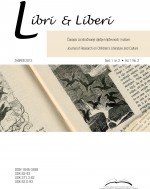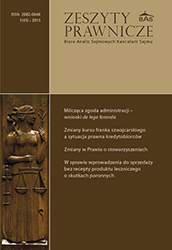


Keywords: ukraine; documentary; panorama; bbc; racism,azerbaijan; president; Ilham Aliyev; immunity; novaya gazeta; Sergei Sokolov; threat; kazakhstan; airplanes; ban; soviet; russia; journalists; media; freedom; serbia; reparations; political; prisoners; goli otok
Plus, Kazakhstan grounds Soviet-era aircraft and Serbia plans reparations for former political prisoners. Around the Bloc is TOL's daily digest of the important, the trivial, the tragic, the weird, and the sober from its coverage region.
More...
Keywords: georgia; Bidzina Ivanishvili; president; elections; fine; turkmenistan; newspapers; media; kosovo; corruption; Dino Asanaj; violence; kazakhstan; border; guards; murder; romania; boc; cluj; pdl
Plus, Turkmenistan pushes print and top Kazakh official resigns over border killings. Around the Bloc is TOL's daily digest of the important, the trivial, the tragic, the weird, and the sober from its coverage region.
More...
Keywords: Macedonia; libel; decriminalize; reporters; fines; Macedonian Journalist’s Association; ZNM; Skopje
A deal to decriminalize libel in Macedonia comes at quite a cost
More...
Keywords: Ukraine; school; equality; disabilities; education; reform
Kyiv has an ambitious plan to integrate disabled children into mainstream classrooms, but many fear the potential for bullying, de facto segregation, and other pitfalls
More...
Keywords: syria; kosovo; pristina; Thaci; Kosovo Liberation Army; Abdulhamid; russia; assad; nushi
Syrian opposition leaders look to Kosovo for lessons in resistance, state-building.
More...
Keywords: latvia; ehl; estonia; lithuania; Ilves; Rehn; Dombrovskis
For the leaders of these post-Soviet states, tough fiscal discipline worked, and took them closer to Europe.
More...
Keywords: Debt; Moldova; Transdniester; Gazprom; Russia
Is the choice for Moldova to let go of Transdniester or pay off the region’s huge debt to Gazprom?
More...
Keywords: serbia; obraz; extremism; gay; parade; belarus; amnesty; prisoners; czech republic; education; exams; djukanovic; smuggling; corruption; bank; bulgaria; archeology; vampires
Plus, Montenegro’s EU bid stays on track despite allegations against its former prime minister, and why Bulgarian archeologists need garlic for their work. Around the Bloc is TOL's daily digest of the important, the trivial, the tragic, the weird, and the sober from its coverage region.
More...
Keywords: Constitution; Constitutional Tribunal; Code of Civil Procedure;
The position of the Sejm of the Republic of Poland concerns Article 207 § 3 second sentence in conjunction with § 7 of the Code of Civil Procedure (CCP), establishing a procedure for consent by order of the president for bringing further writings preparatory to pleading in the course of the case, and Article 207 § 4 CCP which provides the possibility of an oral hearing of the parties in closed session before the first hearing, if the president call upon the parties to submit additional clarification on the issue, in terms of their compliance with Article 45 para. 1 of the Constitution, which establishes the right to a court hearing. In the author’s view, there should be declared compliance of the above provisions of the Act with the Constitution because in the challenged Article 207 § 4 CCP the lawmaker uses the plural to describe the addressee of the norm, so from this provision it follows an obligation to inform about the meeting and the possibility of participation of both parties, as well as entities acting as a party. Moreover, in support of the declaration of compliance of Article 207 § 3 the author presents the fundamental principles of civil process, such as the concentration of the evidence, judicial consideration of the case without undue delay, and the duty of the court and the parties to smoothly and timely completion of the proceedings. Motion has been made for cancellation of the case due to inadmissibility of the judgment on the basis of Art. 39 para. 1 subpara. 1 of the Constitutional Tribunal Act.
More...
Keywords: conference; Deputy; remuneration;
It was found that the Act on the Exercise of the Mandate of a Deputy or Senator, like other legislation, does not contain provisions which expressly forbid participation of the Deputies and Senators in international conferences and acceptation of remuneration for these activities. However, participation in foreign conference by a Deputy and acceptance of any gratuity therefor should not undermine the confidence of voters. To determine, if voters confidence may be affected, factors such as: the nature of the organizer of the conference, the theme of the conference and subject matter of the presentation given must be taken into account. The author points out that giving a speech at a foreign conference by a Deputy does not need to be reported to the Marshal of the Sejm in accordance with Article 33 para. 1 of the Act on the Exercise of the Mandate of a Deputy or Senator, if preaparation and giving the lecture are subject to copyright.
More...
Keywords: unfair business-to-consumer commercial practice | loan denominated unfair business-to-consumer commercial practice; loan denominated in CHF; CHF; the rebus sic stantibus clause; judicial valorisation valorisation
In January 2015 the Swiss National Bank took the decision to stop keeping the exchange rate of CHF into EUR at the minimum level. Since that, the exchange rate of CHF has been changed and grown up significantly. As in many loan agreements in Poland the amount of loan is denominated in CHF, its exchange rate fluctuations are phenomenon which is subject of interest and research not only from economic, but also from legal point of view. It is to underline that many of the loans denominated in CHF are long-term housing loans. The reason for many of the housing loans in Poland are denominated in CHF was their better availability especially for the people who wanted to acquire the first flat. In this article the impact of the exchange rate of CHF fluctuations on legal position of the borrowers is considered especially in the light of provisions of the Polish Civil Code (art. 3571 – the rebus sic stantibus clause; art. 3581 § 3 – the court-declared valorisation; art. 82–88 – defects in declaration of intent) and the bill on prevention of unfair business-to-consumer commercial practices.
More...
Keywords: Poland; contraception; drugs; European Union;
The opinion deals with the effects of the European Commission Implementing Decision whereby ellaOne is commercially available in all Member States without a prescription. The analysis leads to the conclusion that under the existing law, Poland is obliged to implement the decision of the Executive Committee and the medicinal product ellaOne should be available over-the-counter. Nevertheless, Polish legislature may decide to exclude or restrict the sale or use of medicinal products as contraceptives or abortifacients. Therefore, it is permissible to adopt a regulation to prohibit the sale of ellaOne or adopt provisions specifying that it will be available in Poland only on prescription.
More...
Keywords: municipality; fire brigade; Constitutional Tribunal; sickness benefit;
In this position the Polish Sejm declares Article 26, para. 1 of the Act on Fire Protection to be consistent with the constitutional principle of social justice laid down in Article 2 and Article 32 para. 1 of the Constitution. In support of this argument, it was considered that a volunteer firefighter who, in connection with participation in the rescue operations or exercises, has suffered bodily injury and became temporarily unable to work, is entitled to sickness benefit equal to 80% of the base amount, and not – like members of professional firefighting units – up to 100% of the base amount of sickness benefit for an accident at work. Members of VFBs do not practice the profession of firefighter and, therefore, are not entitled to the accident insurance that guarantees 100% reimbursement of lost earnings in the event of an accident at work. In the author’s view, Article 32 para. 3 subpara. 2 of the Act on Fire Protection provides that the municipality is obliged to insure members of the volunteer fire department, therefore on a normative level their insurance is considered as sufficient.
More...
Keywords: bill; common court; family diagnostics & consulting centre;
The author gives an evaluation of the proposals to supplement the Act – Law on Common Courts System with the provisions on family diagnostic and consultation centres. Currently, their functioning is based on the Act on Juvenile Delinquency Proceedings, which fact is criticized by the author who claims that the centers, due to their tasks and the nature of and the proposed legislation, should be governed by the Act – Law on Common Courts System. In his opinion, the proposed bill does not eliminate all previous doubts concerning the use of evidence supplied by the centre in civil proceedings and, in this regard, needs to be completed. He also discusses some doubts about the wording and the arrangement of the proposed legislation.
More...
Keywords: bill; association;
Examining the presidential bill, the author presents a number of substantive and interpretive doubts aroused by the proposed provisions. Allowing the associations’ bodies to obtain remuneration violates the legal principle according to which associations are based on unpaid work of their members and reinforces the trend of departure from the traditional model of association. Additionally, this raises doubts as to the remuneration of other members of the association. The entry into force of the proposed provisions for dissolution of a local organizational unit (with legal personality) of an association will obscure the relationship between these provisions and the general principles of dissolution of association. The author also points to the incompatibility of the proposed provisions to repeal resolutions of the association’s bodies by the court to the general provisions of civil law. In his opinion, the bill should more specifically regulate some aspects of the process of associations transitions or mergers. Further legislative work on the bill is needed.
More...
Keywords: public information; sitting of the Sejm; Standing Orders of the Sejm;
Provision of information about the activities of the Chamber through the Information System of the Sejm is the primary making accessible public information by the Sejm. The express legal basis is given in Article. 202a of the Standing Orders of the Sejm. This provision is, however, brief – and does not specify what information about the operation of the Sejm will be made available through the System and who is responsible for the published materials and their selection. Shaping the mechanism for making accessible public information by the Chancellery of the Sejm, the Sejm assumed that the website only part of the information specified in the Constitution and the Act as public information, will be published. The scope of the information available is determined by the Chancellery of the Sejm. The Standing Orders of the Sejm, however, do not contain any provision forming the basis for recording the sittings of Sejm committees and sub-committees, which would also provide the basis for placing the recordings in the Information System of the Sejm.
More...
Keywords: Penal Code; violence; bill;
The author questions the proposal to amend the Act – the Penal Code by supplementing its content with an article criminalizing the use of violence – other than as to a person – obstinately or in a manner significantly impeding another person in satisfying their basic needs in order to compel that person to a particular action, omission, or endurance. He points out inadequate arguments used by the authors of the bill to prove insufficient protection of tenants against forced eviction. It was pointed out that the scope of the proposed provision is not confined to behavior aimed at forcing tenants to leave their apartments, but provides for coverage of all cases of persistent violence. The author favors the fact that, under the bill, prosecution of offenses referred to in Article 191 § 1 and 1a of the Penal Code shall be initiated upon request of the injured person.
More...
Keywords: community; waste; family; reliefs and exemptions;
The modification of the content of Article 6k, para. 4 of the Act on Maintaining Cleanliness and Order in Municipalities made by the above said amendment raised doubts about the possibility of introducing reductions of fees for municipal waste management for families with many children. Such reductions were granted by the councils of municipalities (cities) on the basis of the amended provision. The author also presents conclusions de lege ferenda introduced in the Polish legal system of provisions enabling the use of incentives for families with many children. The analysis covers in particular the provisions of the Act on the Charter of the Large Family.
More...
Keywords: voting; Deputy; Standing Orders of the Sejm; legislative procedure;
The author emphasizes the formal equality of the Deputies founded on the provisions of the Constitution. He points out the impossibility of extending the time for speech of non-aligned Deputies over six minutes for the entire sitting of the Sejm. The term “speech” should not be understood as any of the instances of taking floor by a Deputy, but only those in which they present their views on the issue considered at the meeting of the Sejm. Referring to the rules of procedure of the Sejm, he claims that posing questions by non-aligned Deputies during the third reading shall depend the consent of the Marshal of the Sejm. The author also emphasizes that, in the light of Article 45 para. 1 of the Standing Orders of the Sejm, it is not allowed to submit amendments during the second reading by any of the Deputies individually.
More...